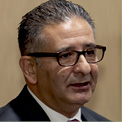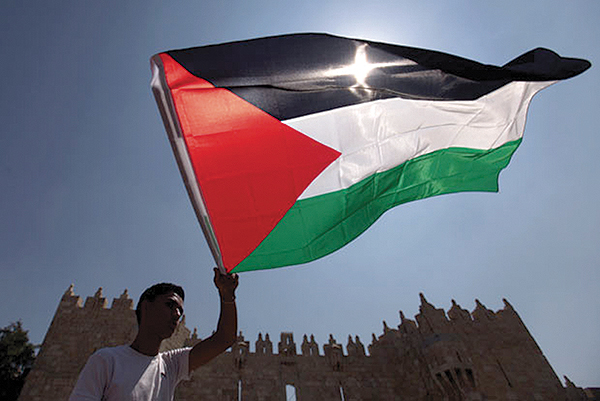
Since the early nineteenth century, a number of foreign consulates general have been located in Jerusalem. During the Ottoman rule and the British Mandate Era, they operated under the umbrella of the corpus separatum (separate status)i based on the set of laws governing this body. The mandate of these consulates was not limited to the diplomatic and political spheres but covered also the economic development sectors. These consulates, referred to as the “Consular Corps of the Corpus Separatum,” included the United States of America, the United Kingdom, Belgium, France, Sweden, Italy, Turkey, Spain, and the Holy See. Their presence was based on customary and internationally approved rules of protocol that prevented the recognition of legal claims to Jerusalem by any party.
After 1948, these countries continued their diplomatic representation in Jerusalem. Until 1967, they confined the dealings of these offices to Palestinian affairs and maintained separate embassies in Tel Aviv to deal with Israel. Today, these diplomatic missions deal with the Palestinian National Authority (now temporarily located in Ramallah) from their locations in East Jerusalem. The presence of the foreign diplomatic corps over the years has consolidated the de facto treatment of East Jerusalem as the future capital of the state of Palestine. It is hoped that, once a comprehensive peace is reached, these consulates would become the future embassies of their countries in the capital of Palestine in East Jerusalem.
♦ While their efforts are commendable, the consulates general in Jerusalem need to be bolder and create de facto steps that will help East Jerusalem regain its status as the center of Palestinian political, cultural, and economic life.
From 1991 to 2001, the countries that had diplomatic missions in East Jerusalem dealt with the new Orient House as their Palestinian contact address in the Holy City. Starting in 1991 – during the historic moment in the region that was marked by the end of the war to oust the Iraqi forces from Kuwait – there was a worldwide recognition of the fact that it is unacceptable to mobilize world military forces to put an end to one occupation (i.e., the Iraqi occupation of Kuwait) while closing one’s eyes to another belligerent and longer-lasting occupation (i.e., the Israeli occupation of Palestine). Thus, the Madrid Peace Process, the negotiations that eventually led to the so-called Oslo Peace Accord, were initiated and the Orient House became the headquarters for the Palestinian team. Here, dignitaries and diplomats alike delivered messages from the capitals of world powers, exchanged ideas, and listened to the demands of the Palestine side.
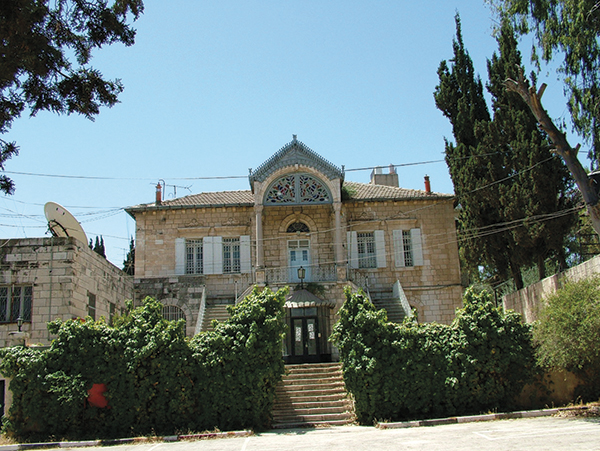
The diplomatic envoys involved in this shuttle diplomacy became instrumental in framing the concept of the two-state solution, which was believed would solve the Palestinian-Israeli conflict and initially redefine the relation between the occupier and the occupied, eventually rendering this monstrosity obsolete. In parallel to the political track of negotiations, an initiative for technical and economic development was launched. The associated frequent visitation by dignitaries and diplomats to the Orient House further consolidated a de facto recognition of the status of East Jerusalem as the capital of the future Palestinian State.
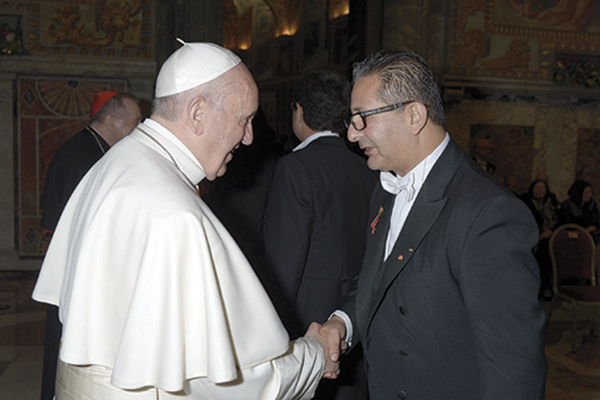
The Madrid Peace Conference paved the way for the Declaration of Principles (DOP), which represented the guiding principles of the Palestinian-Israeli Interim Agreement (Oslo Agreement). This development would not have been possible without the Palestinian leadership’s acceptance of the request made by former Secretary of State James Baker to “jump on the bus” to freedom and statehood. The “bus” drove the Palestinian delegation to the first station, namely the Oslo Agreement. However, it remains crucial to remember that this agreement was intended to be a transitional arrangement to give the Palestinian Authority (PA) the time to prepare the state institutions, among them the various representative offices of foreign nations to the PA. Nevertheless, these new diplomatic offices were established not in East Jerusalem but, provisionally, in Ramallah, until the time when they would be relocated to the capital, East Jerusalem.

The existence of these offices is significant for many reasons: They enhance the contribution of the represented countries to the socio-economic development of Palestine and strengthen their influence and encouragement that aim to reinforce and promote the pluralistic character of the vibrant Palestinian civil society. Their presence in Ramallah has given delegates the chance to have a more accurate assessment of the situation and of conditions under occupation in Palestine. Such first-hand impressions can contribute to the development of a more Palestine-friendly point of view based on experiences on the ground and due to better access to Palestinian interlocutors. Together with the consulates in Jerusalem, these representative offices have been involved in the pursuit of the two-state objective.
In the latest round of Palestinian diplomatic moves that aimed to gain international recognition, both at the UN and bilaterally from various capitals, the consulates in Jerusalem and representative offices in Ramallah have also become a focal point for contact with the Palestinian leadership and civic-society organizations. The presence of these representation offices has proven imperative for a first dialogue and has facilitated the shuttle diplomacy that the Palestinian leadership has conducted with various capitals. The diplomatic fervor that has ensued lately constitutes a legitimate outcry that has been heard in each capital throughout the world. Sweden was the first to take the bold initiative of courageously endorsing the moral, legal, and political stand that recognizes the state of Palestine. This bold step was followed by that of the Holy See. Other countries have followed suit, and still others, especially on the European continent, will do so – hopefully in the near future. The local diplomatic missions play a major role in persuading their esteemed states to take serious policy decisions.
Despite limited diplomatic achievements, however, Jerusalem remains under the shackles of the occupation. This is clear evidence for the failure of the international community to effect positive change and halt the deterioration of the situation in the Holy City. While their efforts are commendable, the consulates general in Jerusalem need to be bolder and create de facto steps that will help East Jerusalem regain its status as the center of Palestinian political, cultural, and economic life; similar to the days when the Orient House was the center of Palestinian existential presence. Gone are the days when senior dignitaries who visited the region would conduct official meetings in East Jerusalem, visiting institutions in various sectors with the aim of giving a message of hope and stressing the well-known positions of their countries. Today, and contrary to the recommendations of the heads of many missions, the visiting foreign ministers and other dignitaries avoid meeting the living stones and beleaguered communities of the Holy City. Given that such meetings hold symbolic significance, this needs to change.
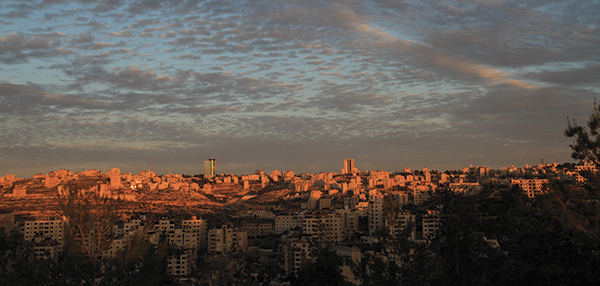
Since 2012, when the UN General Assembly passed Resolution 67/19, 137 states have recognized the State of Palestine, and the Palestinian flag is being raised with the flags of other nations in the UN headquarters and in the many European parliaments that have recognized the State of Palestine within the borders of 1967. This recognition should in fact have motivated more countries to follow suit and recognize the State of Palestine with its capital of East Jerusalem.
The internationally recognized 1967 borders of the West Bank and the Gaza Strip should be the lines that determine the borders between the two states of Palestine and Israel. If this line is erased, then the imposition of a one-state solution with two systems will inch closer to reality; in other words, an apartheid state will be the bitter reality of the region, and the approach that is based on exclusiveness-thinking will prevail over of a view that looks ahead towards a new Middle East based on the Arab Peace Initiative.ii Let us hope that the diplomatic missions in Jerusalem revisit their original mandate and re-establish in and radiating from East Jerusalem a center of hope and diplomatic fervor.
» Ambassador Issa Jamil Kassissieh served as one of the diplomatic advisers to the late Faisal Husseini during his time as head of the Orient House. Upon the election of President Abbas, he joined the office of the president, as an adviser in diplomatic affairs. Today, he holds the position of deputy head at the Negotiations Affairs Department.
i Corpus separatum is a term applied to the city of Jerusalem in the 1947 United Nations Partition Plan for Palestine. According to Resolution 181, corpus separatum meant that the city was to be “under a special international regime and shall be administered by the United Nations.”
ii Fifty-seven Arab and Muslim countries are ready to normalize their relations with Israel provided that Israel ends its occupation of territories occupied in 1967. The Arab Peace Initiative should be operational as a basis for an international conference with a clear and detailed mandate, a comprehensive timeframe, and solid mechanisms to ensure the implementation of the vision of the two-state solution based on the 1967 borders.

